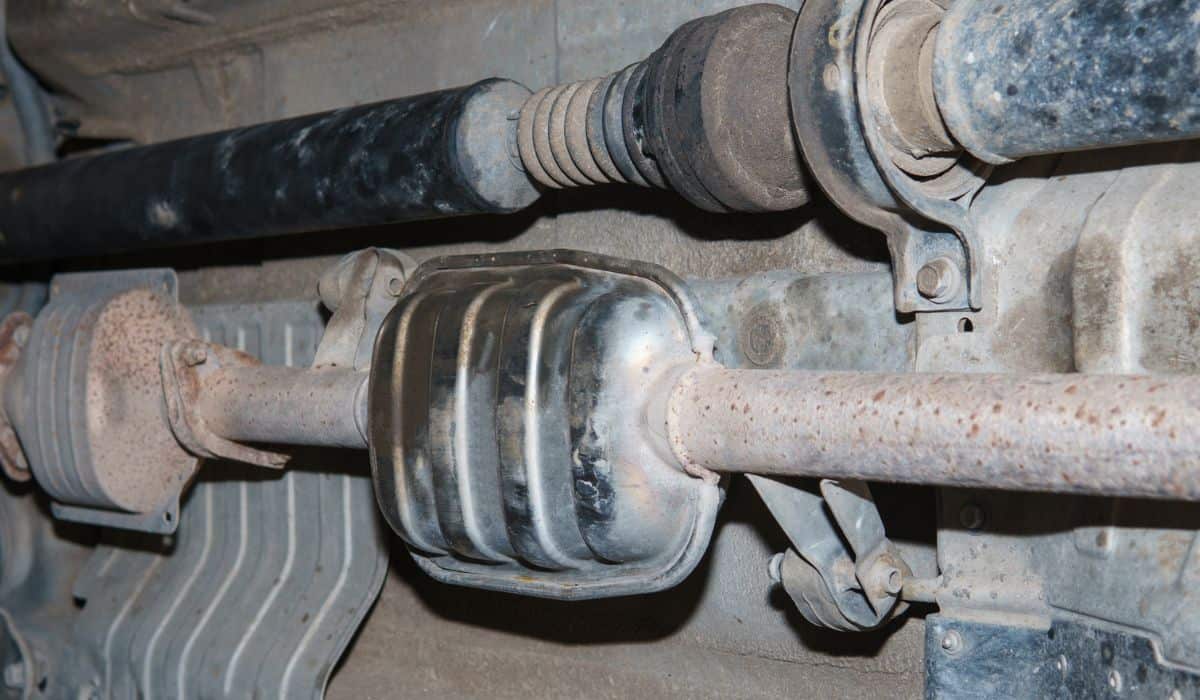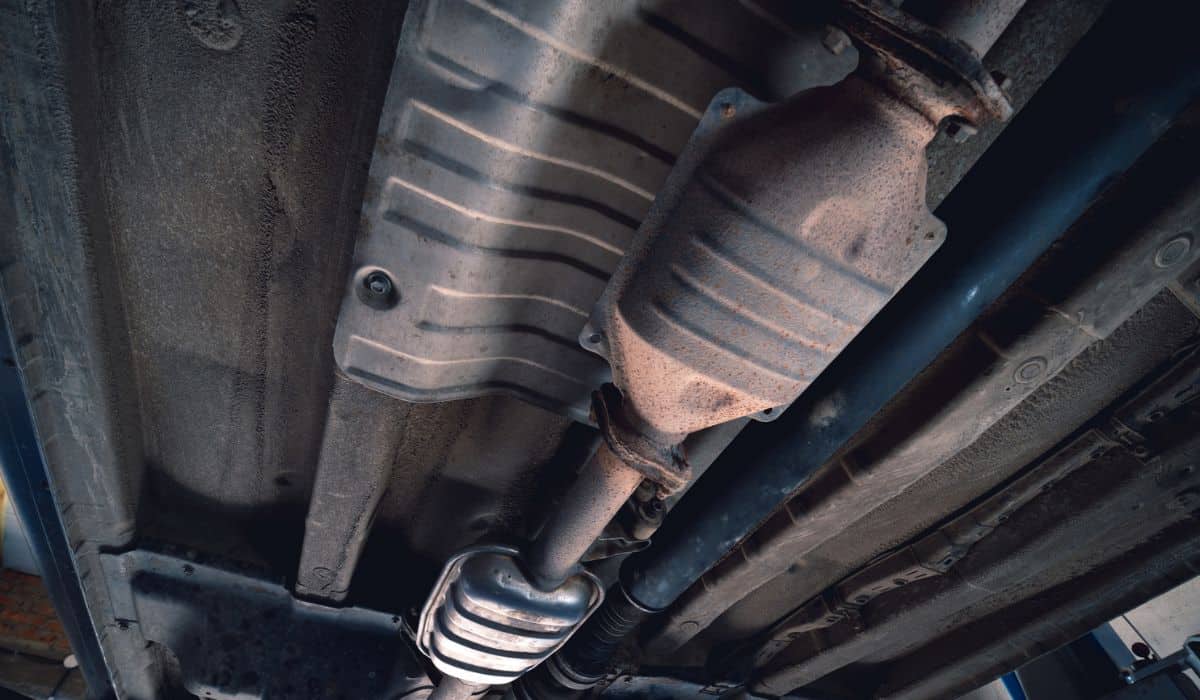Can Oil Damage a Catalytic Converter? What To Know
Catalytic converters are necessary for a vehicle’s exhaust system and for emissions tests. Unfortunately, they can become damaged easily, and problems are common. So, can engine oil damage your converter, and what can you do about it?
Oil can damage converters in multiple ways. Excessive oil, oil leaks, and burning oil can all lead to failure. Other causes include unburned fuel and leaking coolant. These issues are usually signaled by performance drops, a sulfur smell, the check engine light, and rattling sounds.
Problems with catalytic converters are common. However, they need to be dealt with swiftly. Let’s take a look at how oil can damage catalytic converters, other causes of catalytic converter failure, and how these issues can be resolved.
How Can Oil Damage a Catalytic Converter?

Oil is necessary for a vehicle to run smoothly, but it can also damage components. Excessive oil in the crankshaft, oil leaks, and burning oil can cause the catalytic converter to fail.
Here’s a breakdown of how:
Excessive Oil
When an engine is exposed to excessive amounts of oil, this interfere with the crankshaft, causing the oil to mix with air and create a foamy mixture.
The foamy oil is a poor lubricant and can’t be moved through the engine effectively. The engine won’t have enough lubrication, and the internal components can start to fail.
Furthermore, excessive oil places strain on a vehicle’s internal gaskets and seals, causing oil to leak or burn.
Leaking or Burning Oil
An engine can start to consume excessive amounts of oil or leak as it ages. These issues are typically caused by worn-out piston rings or stiff valves. Any number of worn-out engine parts can cause burning and leaking oil.
The burned oil in the engine can travel through the exhaust system, where it can damage the converter and contaminate the internal components. You might notice thick black smoke coming out of the tailpipe, or your car is using more oil than usual.
These problems will surely impact your vehicle’s performance and can permanently damage the catalytic converter if they aren’t handled swiftly.
Other Reasons Why Catalytic Converters Fail
Catalytic converters encounter issues all the time, and they’re not all necessarily caused by oil.
Here are a few other causes to keep in mind:
Leaking Coolant
Coolant leaks are serious issues that can eventually damage the engine or motor, depending on the severity. Slower leaks from faulty head gaskets can transfer the coolant back through the exhaust system and clog the catalytic converter. The materials inside become contaminated and aren’t as effective.
If you see coolant escaping from the engine’s reservoir or see white smoke from the exhaust, you might have a faulty head gasket and need maintenance ASAP.
Unburned Fuel
Excessive heat can be dangerous for several engine components, including the catalytic converter. Engine exhaust already reaches over 750°F, so adding unburned fuel can easily increase the temperature to damaging levels.
Unburned fuel typically enters the exhaust system when a vehicle’s motor is running too rich and usually ends up burning the converter.
Excessive temperatures can damage or melt the internal structure of the catalytic converter, causing restrictions in the exhaust’s flow. Your engine can misfire, or you may see a warning code for faulty oxygen sensors. Either way, it’s crucial to handle this issue before it leads to a total converter failure.
Signs Your Catalytic Converter Might Be Failing

So, wear and tear, oil damage, internal leaks, and other issues can cause a catalytic converter to fail. Clogs and blockages are also common and typically occur in higher-mileage cars or older models. But how do you know your catalytic converter is damaged?
Try checking for these signs:
Performance Decreases
Performance drops are some of the first signs of a faulty catalytic converter. Your car might feel slow, sluggish, or like it’s struggling. Significant decreases in acceleration are also common symptoms.
Smoke Coming Out of the Exhaust
Once the catalytic converter fails, you’ll see dark-colored smoke expelling out of the exhaust pipe. The smell of the exhaust fumes will also change. You might notice a sulfur scent, which is common in failing converters.
Check Engine Light Is On
The check engine light can display if the catalytic converter starts to fail. The vehicle’s sensors track gas levels via the exhaust to measure the converter’s efficiency.
Rattling Sounds
A faulty catalytic converter can have loose parts on the inside that rattle around. You might hear sounds from the underside of the vehicle that can worsen over time if the converter is going bad.
Failed Emissions Test
Failing an emissions test can signal that your catalytic converter is going bad. You won’t be able to drive legally if your state requires a passed emissions test.
It’s best to take your vehicle to a professional mechanic for inspection if you notice any of these symptoms. Putting these problems off for too long can lead to catalytic converter failure or damage to your vehicle.
